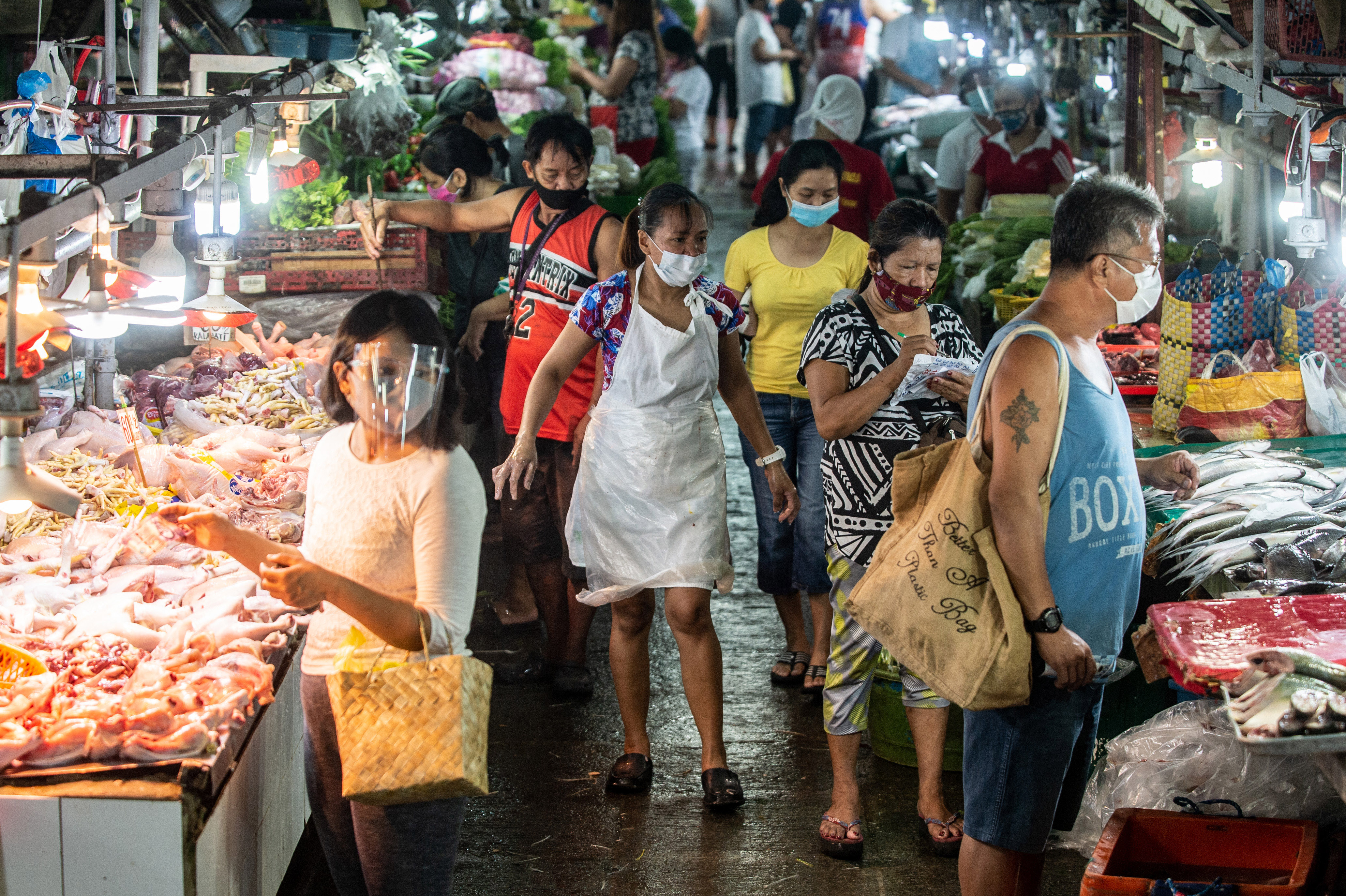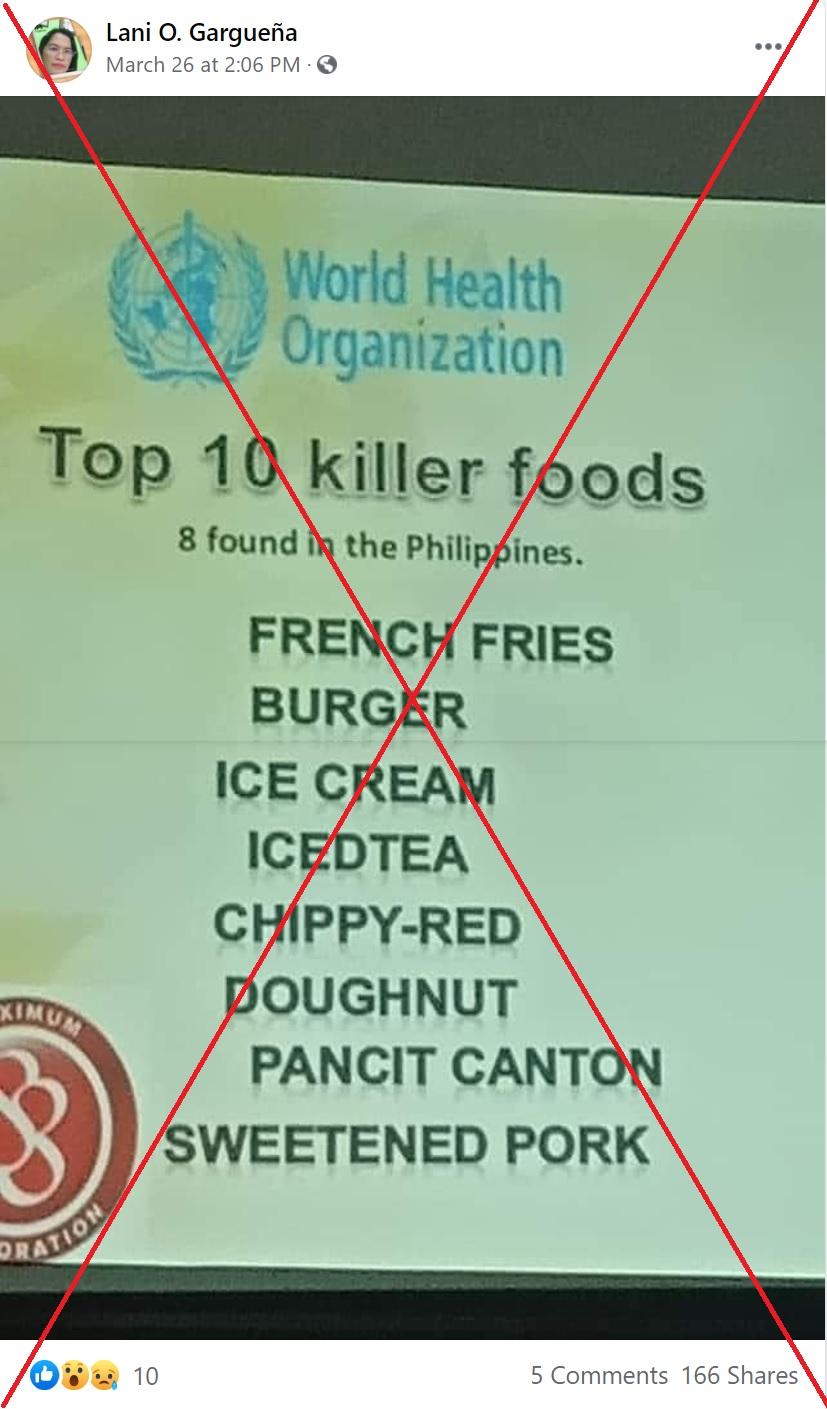
Hoax online graphic circulates in the Philippines that falsely warns of ‘WHO’s killer foods’
- This article is more than four years old.
- Published on April 2, 2021 at 04:55
- 1 min read
- By AFP Philippines
The graphic was posted on Facebook here on March 26, 2021. It has been shared more than 100 times.
The graphic, which bears the WHO’s logo, reads: “Top 10 killer foods / 8 found in the Philippines / french fries / burger / ice cream / iced tea / chippy-red / doughnut /pancit canton / sweetened pork".

The post circulated online as the Philippines confronts a growing obesity issue, with the consumption of processed foods steadily rising, as noted in this UNICEF study released in March 2021.
The purported WHO graphic was also published here and here on Facebook, here on Twitter, and in this blog.
The graphic, however, is fake.
“WHO is aware of reports of a fake list of deadly foods that is circulating online,” a WHO spokesperson told AFP in a Viber message on March 30, 2021. “This list is not from WHO and should not be shared.”
The WHO previously refuted the claim in July 2016, tweeting it “has never declared a list of 10 killer foods.”
Multiple keyword searches on Google found no lists of “killer foods” published on any official WHO website or social media channel.
WHO advisories, published here, here and here, encourage people to follow healthy diets, including eating more vegetables and limiting the consumption of sugar and salt. The advisories also promote safe food handling practices.
The misleading claim was also debunked by Philippine news organisation Vera Files.
Food safety and nutrition are frequent topics that emerge in online misinformation. AFP has previously debunked misleading claims about the safety of consuming certain products, including the food additive MSG and food-grade wax used on apples.
Copyright © AFP 2017-2026. Any commercial use of this content requires a subscription. Click here to find out more.
Is there content that you would like AFP to fact-check? Get in touch.
Contact us
